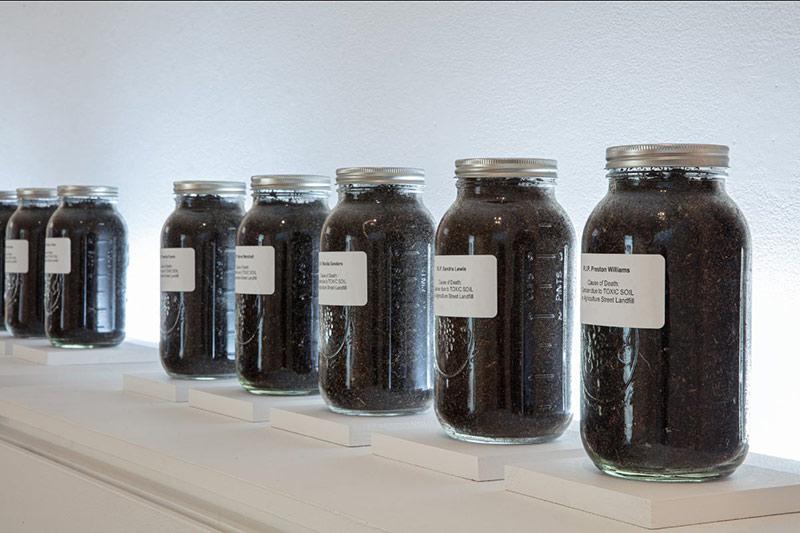Newcomb Art Museum to host public forum on lead featuring Tulane faculty
In conjunction with its fall exhibition season, Newcomb Art Museum at Tulane University will host a public forum on lead, Saturday, Nov. 9 from 2 to 3 p.m., free and open for all to attend.
Moderated by Christopher Oliver, PhD, professor of practice in Tulane's Sociology and Environmental Studies department, Jill H. and Avram A. Glazer Professorship and Carnegie Corporation of New York, professor of Social Entrepreneurship at the Taylor Center for Social Innovation and Design Thinking and affiliated faculty in Urban Studies and the City, Culture, and Community Programs, the forum will feature Tulane faculty and field experts as they explore the critical issues of wellness facing our local community.
“The panel discussion this Saturday aims to build public awareness of lead in New Orleans,” said Laura Blereau, curator and coordinator of Academic Programming at the Newcomb Art Museum. “Panelists will not only explore lead’s prevalence in our everyday environment and the risks it poses for human health, especially for children, but they will also discuss how environmental policy is being shaped in our community.”
“Lead in urban environments, especially in New Orleans, remains an important yet under examined issue,” said Oliver. “While many researchers have provided important data on types of lead exposure, including the sources of contamination and their consequences, data examining the various avenues of exposure and the full extent of exposures – including the potential for future contamination – remain limited. This is especially true locally, as well as nationally.”
Panelists include Thomas Beller, associate professor in Tulane's Department of English, whose writings deal with the dynamics of relationships, a sense of place, and a preoccupation with the nature and effect of time, and Howard Mielke, PhD, research professor in the School of Medicine and an expert on lead poisoning and the impact of the urban environment on human health. Mielke has published research on the association between lead dust contaminated soil and childhood blood levels, as well as the consequences of power sanding and paint scraping in New Orleans. Adrienne Katner, of the LSU Health Sciences Center and School of Public Health, whose current research involves an investigation of the occurrence of lead in New Orleans' tap water, is also a panelist. Katner’s research garnered national attention in the aftermath of the water crisis in Flint, Michigan, as her results and findings had highlighted problems with drinking water regulations and prevailing guidelines to reduce exposure to lead from drinking water.
“This panel will illustrate some of the work that has been done in New Orleans by Tulane and LSU researchers, but will also, importantly, focus on what still needs to be done – and what individuals can do to understand how to protect their community and their family from potential sources of lead poisoning,” said Oliver.
Prior to the forum, the public is invited to a free, guided tour on Saturday, Nov. 9 at noon, to explore in-depth Newcomb Art Museum’s current exhibitions "Flint is Family: LaToya Ruby Frazier and the student-organized The American Dream Denied: The New Orlean Residents of Gordon Plaza Seek Relocation," which both highlight the impact of environmental pollution on marginalized communities.
The museum and its events are free and open to the public. The public forum will be held in the Freeman Auditorium up the stairs to the left of the museum. More information about the exhibitions and events can be found at newcombartmuseum.tulane.edu.

